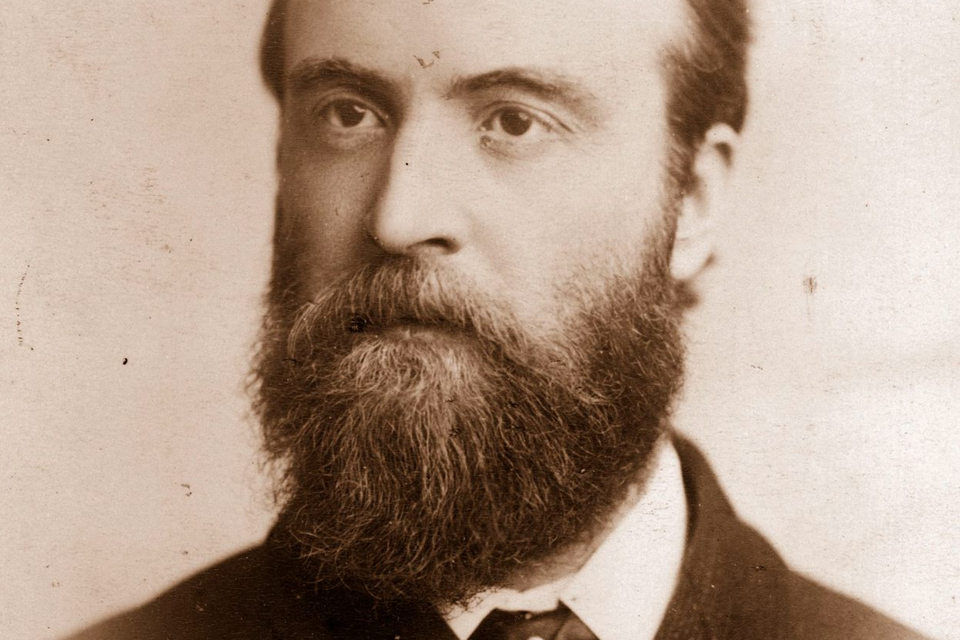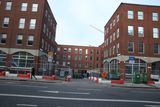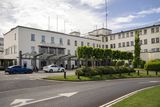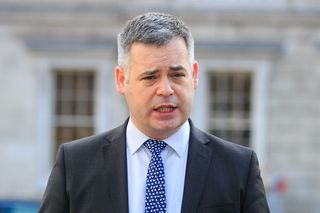Parnell and the question of what he might have achieved still have a grip on our imagination
The death of Charles Stewart Parnell at a young age left many questions unanswered
It was something of a motley crew who gathered together last Sunday morning to pay homage to one who was once labelled "the uncrowned king of Ireland".
Crisp autumn sunshine only added to the sense of reverie and reflection in Glasnevin cemetery. All around, some of the most famous names from our past lay in their final resting places . . . Daniel O'Connell, Padraig Pearse, Michael Collins, Eamon de Valera.
But this particular group was there to pay homage to another name forged in the pantheon of Irish historical memory - Charles Stewart Parnell.
It was Ivy Day, after all, the annual day of remembrance for somebody who has been variously described as ''Ireland's great lost leader''. However, it's also an event not exactly to the forefront of public awareness, as we roll ever onwards towards the 1916 centenary commemorations.
Former Taoiseach John Bruton has already stirred up something of a hornet's nest by suggesting too many Irish people have an over-simplistic view of the Rising.
His central argument is that the introduction of the ''blood sacrifice'' idea by Pearse and his followers, in the battle for Irish independence, was, in retrospect, unnecessary.
He maintains that Ireland would have achieved a form of self-government through the Home Rule movement, without any of the bloodshed spawned by the taking over of the GPO and subsequent events.
Bruton's hero is John Redmond, leader of the Irish Parliamentary Party. The argument is that through Redmond's unrelenting, and peaceful, political agitation, we would gradually have achieved control over our own affairs, without resort to physical force.
The views of the former Fine Gael leader have attracted vehement criticism, particularly from some of our leading historians. They accuse him of being ahistorical. In other words, deducing with certainty how things might have evolved in the past, if only events had taken a different course, can be something of a self-defeating exercise.
But yet we can surely wonder - and ponder - on the what might have been.
So on Sunday morning we remembered Parnell and the things that might have happened if he had not died at the all-too-young age of 45. The pathos of his life endures. On a personal level, there was the trauma and the tragedy of his doomed love affair with the already married Kitty O'Shea.
Their decision to become husband and wife, following the turbulent divorce from her first husband, still resonates through the pages of our history.
And then there are the hard political considerations. What if he had lived and stayed on as leader of the Irish MPs at Westminster, for, say, another decade? How would that have affected ongoing relations with Westminster? What further political successes would he have achieved had he retained power for a much longer period?
If Parnell had remained a pivotal figure in the Irish consciousness for, say, another decade - might this have influenced the formative years of a young Padraig Pearse?
So many things might have worked out so differently.
There is, of course, the tendency to hero-worship Parnell from afar. The reality is that this Protestant landlord's son from Avondale in Wicklow was an unlikely Irish nationalist. It has been suggested that he acquired a certain anti-Englishness through his American-born mother - but the peculiarities of his own personality may have been at the heart of the matter.
In a certain sense, he had a kind of anger against the world. The effects of a noticeable stammer in his early years cannot be ignored. For much of his life he came across as aloof and somewhat socially inept. And always there was more than a hint of the arrogance redolent of the landlord class of his time.
Yet he was a masterful operator in the political hothouse which was the House of Commons back then. He ruthlessly forged his 86 Irish MPs into a single voting block.
They would support either the Conservatives or the Liberals - depending on which party would be most amenable to his demands.
The commemorative lecture for this year's remembrance ceremony was given by Dr Catriona Crowe from the National Archives of Ireland.
She traversed once more a political career which reached the dizzying heights - only to be swamped in ignominy, defeat, and rejection. In the wake of the 'divorce scandal', he would be abandoned by too many in his own inner circle.
When Sunday's events had concluded, some of those who had attended the event adjourned to a nearby coffee shop. Soon there was some mild musings at one of the tables.
A particular Parnellite enthusiast suggested there would have been no reason for the 1916 Rising if "the uncrowned king of Ireland had not been cut down in his prime''.
But this can only be a debate without end.
The 'what might have beens' lie buried forever beneath that rock of Wicklow granite which overlays one of the most visited graves in Glasnevin cemetery.
The rock remains emblazoned with the still emotive singular word - Parnell.
And that can still stir something within us from the deep.
Join the Irish Independent WhatsApp channel
Stay up to date with all the latest news















